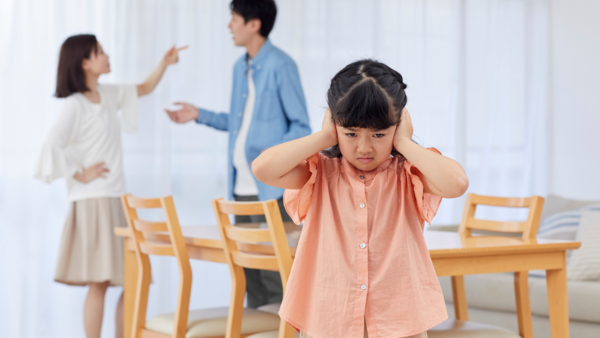Trending
6 reasons why arguing before children is not a good idea
Parental conflicts negatively impact children's well-being and cognitive development, leading to issues like decreased attention, poor brain function, and increased aggression. Witnessing parental fights can cause trust issues, physical illness, and hinder natural development. Effective conflict resolution is essential for children's psychological and emotional health.
Fighting and disagreements between spouses are inevitable. While some disagreements between parents are normal and can be beneficial, excessive fighting involving yelling, name-calling, insults, or threats can be detrimental to children's well-being and cognitive abilities. Research indicates that parental conflicts and fighting in front of children can significantly impact their psychological, social, and emotional development, according to a comprehensive analysis published in Child Development in 2013.
Children's safety and security are fundamentally affected when they witness parental conflicts. Due to biological factors, children are programmed to attach to caregivers, making them particularly vulnerable to emotional distress when witnessing fights between parents.
Decreased attention
Poor brain function
Children's cognitive performance can be affected by the stress of living in households with frequent parental conflicts. The 2013 study by Author Manuscript found specific impacts on attention management, emotional regulation, and problem-solving abilities. Mirror neurons in children's brains cause them to experience the emotional impact of witnessed conflicts as if they were happening to them directly. This can result in early childhood trauma and increased symptoms of depression and anxiety.
Builds aggression
Children who witness regular fighting between parents often develop their own aggressive tendencies. This exposure to verbal or physical violence can have lasting psychological effects, leading to difficulties in maintaining respectful relationships and controlling anger in adulthood.
Physical illness
The research showed that children exposed to parental conflicts may experience physical symptoms such as headaches, stomach aches, and sleep issues. They frequently worry about divorce, abandonment, or their parents' emotional well-being.

Inculcate trust issues
Trust issues emerge when children observe their parents fighting. They may develop beliefs that either those who love them are allowed to be disrespectful or that no one can be trusted to be kind to them. These trust issues can lead to increased oppositional behaviors, with children becoming more argumentative with caregivers and teachers. They may adopt defensive and hostile attitudes as they struggle with learned helplessness from growing up in an aggressive environment.
Poor bond with parents
The parent-child relationship can deteriorate in high-conflict situations. Parents under stress may have fewer emotional resources to bond with their children, while children may develop protective behaviors that further distance them from their parents.
Reduced natural development
When children are exposed to parental conflicts and violence, they are forced to confront adult themes before they are developmentally ready. This premature exposure to adult problems can interfere with their natural developmental progression.
How parents should manage disagreements
While some conflict between parents is unavoidable, it should be handled in a way that demonstrates respect and resolution. This allows children to understand that disagreements can be resolved constructively without causing emotional harm. Parents have a responsibility to manage their own emotions and learn appropriate conflict resolution skills to protect their children's psychological and emotional well-being. While it's acceptable for children to witness some disagreements between parents, these should be limited to minor daily issues and should always demonstrate respectful resolution between the adults involved.'
End of Article
FOLLOW US ON SOCIAL MEDIA
Visual Stories
Tired of too many ads?go ad free now










